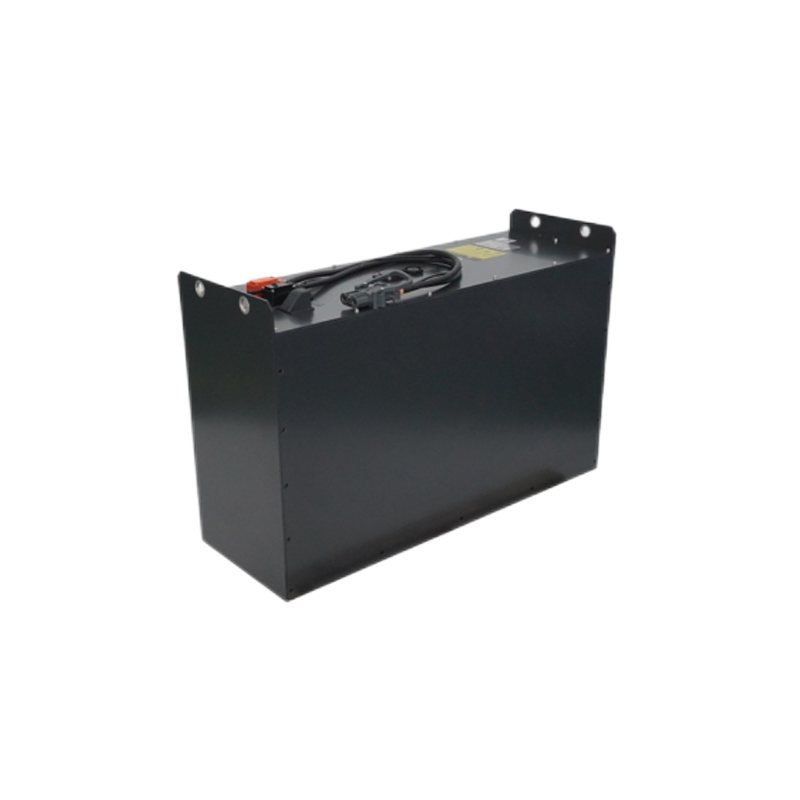Unlocking Efficiency: The Advantages of Lithium Batteries in Forklifts
Lithium batteries have been revolutionizing various industries, and one of the most significant applications is in electric forklifts. As businesses continually seek to enhance operational efficiency, lithium-ion technology is becoming an essential component in the material handling sector. This article delves into the reasons why forklift lithium batteries are gaining traction over traditional le
2025-08-19

Lithium batteries have been revolutionizing various industries, and one of the most significant applications is in electric forklifts. As businesses continually seek to enhance operational efficiency, lithium-ion technology is becoming an essential component in the material handling sector. This article delves into the reasons why forklift lithium batteries are gaining traction over traditional lead-acid batteries and how they can benefit your operations.
Firstly, lithium batteries offer impressive energy density, which translates into longer operational times for forklifts. Unlike conventional batteries, which require frequent recharging and can lead to downtime, lithium batteries can provide continuous power for extended periods. This means businesses can maximize their productivity as forklifts can operate longer on a single charge, reducing the frequency of battery changes and the associated labor costs.
Another key advantage of forklift lithium batteries is their rapid charging capability. While lead-acid batteries can take several hours to recharge, lithium batteries can achieve an 80% charge in as little as one hour. This significant reduction in charging time allows for a more flexible operational schedule, enabling businesses to quickly recharge forklifts between shifts or during breaks, ensuring that equipment is always ready to go when needed.
In terms of lifecycle, lithium batteries boast a longer lifespan compared to their lead-acid counterparts. Typically, a lithium battery can last up to 5,000 cycles or more, while lead-acid batteries usually require replacement after around 1,500 cycles. This extended lifespan not only results in lower overall replacement costs but also less environmental waste, which is an important consideration for sustainability-focused companies.
Moreover, lithium batteries are lighter than lead-acid options, which can lead to better performance and handling of forklifts. The reduced weight allows for more efficient energy use, contributing to an overall increase in the load capacity of the forklift. This means that operators can lift heavier loads without compromising safety or performance, further enhancing operational efficiency.
Safety is another critical aspect where forklift lithium batteries excel. They come equipped with advanced battery management systems that monitor battery health, temperature, and charge status, minimizing the risk of overheating or overcharging. This feature contributes to a safer working environment, reducing the likelihood of battery-related accidents.
Finally, the environmental benefits of forklift lithium batteries cannot be overlooked. They are more energy-efficient, produce fewer emissions, and are often recyclable at the end of their lifecycle. As businesses increasingly prioritize sustainability, adopting lithium battery technology aligns with their goals to reduce their carbon footprint.
In conclusion, forklift lithium batteries are an innovative solution that can significantly enhance the efficiency, safety, and sustainability of material handling operations. With their extended lifespan, rapid charging capabilities, and reduced environmental impact, they represent a smart investment for businesses looking to optimize their forklift operations. Embracing this technology may be the key to staying competitive in today's fast-paced market.
Firstly, lithium batteries offer impressive energy density, which translates into longer operational times for forklifts. Unlike conventional batteries, which require frequent recharging and can lead to downtime, lithium batteries can provide continuous power for extended periods. This means businesses can maximize their productivity as forklifts can operate longer on a single charge, reducing the frequency of battery changes and the associated labor costs.
Another key advantage of forklift lithium batteries is their rapid charging capability. While lead-acid batteries can take several hours to recharge, lithium batteries can achieve an 80% charge in as little as one hour. This significant reduction in charging time allows for a more flexible operational schedule, enabling businesses to quickly recharge forklifts between shifts or during breaks, ensuring that equipment is always ready to go when needed.
In terms of lifecycle, lithium batteries boast a longer lifespan compared to their lead-acid counterparts. Typically, a lithium battery can last up to 5,000 cycles or more, while lead-acid batteries usually require replacement after around 1,500 cycles. This extended lifespan not only results in lower overall replacement costs but also less environmental waste, which is an important consideration for sustainability-focused companies.
Moreover, lithium batteries are lighter than lead-acid options, which can lead to better performance and handling of forklifts. The reduced weight allows for more efficient energy use, contributing to an overall increase in the load capacity of the forklift. This means that operators can lift heavier loads without compromising safety or performance, further enhancing operational efficiency.
Safety is another critical aspect where forklift lithium batteries excel. They come equipped with advanced battery management systems that monitor battery health, temperature, and charge status, minimizing the risk of overheating or overcharging. This feature contributes to a safer working environment, reducing the likelihood of battery-related accidents.
Finally, the environmental benefits of forklift lithium batteries cannot be overlooked. They are more energy-efficient, produce fewer emissions, and are often recyclable at the end of their lifecycle. As businesses increasingly prioritize sustainability, adopting lithium battery technology aligns with their goals to reduce their carbon footprint.
In conclusion, forklift lithium batteries are an innovative solution that can significantly enhance the efficiency, safety, and sustainability of material handling operations. With their extended lifespan, rapid charging capabilities, and reduced environmental impact, they represent a smart investment for businesses looking to optimize their forklift operations. Embracing this technology may be the key to staying competitive in today's fast-paced market.
Key words:
Related News


